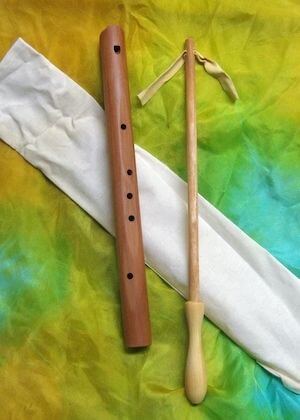Dear Constantia Waldorf School Community,
In early 2019, within my very first weeks of having become music teacher at our school, a parent arranged a formal meeting with me. During this meeting, I was informed that the Waldorf school that she had attended in Germany had everyone from Class 8 and up performing Mozart’s Requiem in a cathedral with full orchestra comprising mostly school-goers and community members, and that it was an experience so profound that she wanted nothing less for her own children (then in Kindergarten). She gave me ten years to get the music department at CWS to do the same. “But we have no orchestra”, I protested, “and no choir!”. “Yet”, she replied. This was her final word.
As it turns out, this is not the most surprising of the wishes for the music department that have been expressed along the way. One colleague’s abiding dream is to make it compulsory for every student to play an instrument, and to have the entire school starting each day with 20 minutes of music-making together before anything else. Can you imagine the logistics? But then, imagine how wonderful it could be….
Six years ago, neither of the above seemed remotely within our grasp.
But 2024 has shown that perhaps we are not so far off as all that. We’ve had a wonderful year in the Music Department, and with thanks to all those who have given of their best to the musical life of the school, I’d like to give a brief outline of all that is on offer at this point:
In the Primary School, we have a voluntary choir for Class 4 and up rehearsing once a week. We have a voluntary orchestra after school every Thursday, and we have a large percentage of our Primary School children taking extra-mural instrument lessons, either with one of our extra-mural teachers at school (see details below) or externally. Each class has two music lessons per week during which they sing, learn to read and write music, and play in their class ensembles. In Friday assembly we all sing together, sometimes in many different parts. Our termly festivals are infused with singing, and our language teachers use much singing in their classes too.
In High School, we have a weekly practice for vocal ensemble, instrumental ensemble, guitar group, drum circle, choral singing, and this year we have had some combinations of the above groups too. Class 8 and 9 have music theory once a week, and we offer music as a Matric subject. We initiated our Lunchtime Concert series this year, bringing in outside musicians to inspire our students and we host a termly Music Concert for soloists and ensembles across Primary and High School. This year two of our Class 12 students wrote, performed, and recorded music for their Class 12 projects, and blew us away!
In the greater community, we offer a weekly choir session on a Wednesday evening to anyone prepared to commit to regular attendance. We have a group of about 30 committed parents and teachers who have made this a soul-nourishing, community-building endeavor. This year, with the input of this choir community, we held our first Gala Concert – a showcase for all the various ensembles in the school. This was a vibrant event from which so many went home enlivened, moved, and fulfilled by the magic of working together united in the pursuit of beauty. Since then, the wish for a parent/teacher instrumental ensemble has been expressed. We look forward to what will come of this, and we invite anyone to join should you wish.
The various arts influence and imprint on us every day whether we are aware of it or not. It is eye-opening to consider what parts of ourselves we exercise in creating (and beholding) the different art-forms: what is the difference in the experiences of building and sculpting as opposed to painting as opposed to writing, acting, dancing, eurythmy? And how does music-making fit into this trajectory, being as it is received not by the eye nor in a solid physical form but by the ear and entirely invisible? How is it that music is so completely logical and mathematical in its timing, measurement of pitch, regularity of beat, patterns of consonance, and dissonance – and yet speaks directly to the soul, having as it does such a profound capacity to influence our feelings? This universal language of the heart is truly a social art form. Creating music together gives each one the platform to bring of their own higher nature into the heart of the whole community.
For this reason, in a thriving community, living music is as essential as breathing.
Congratulations to our community for bringing music to life within our school, and for children, parents and staff alike. Mozart Requiem, we are ready!
Best wishes for a smooth and peaceful wrapping up of this full and vibrant year,
Paula Megaw on behalf of the Music Department.
Extra mural music lessons: the Constantia Waldorf School offers a variety of after school music lessons. You can contact the music teachers directly for all enquiries.
Piano, Singing and Accordion: Ingrid Salzmann, 073 884 5352 or e-mail her at ingridsalzmann@gmail.com.
Singing and Voice and Piano: Keaton Manwaring offers voice to students of all ages including adults. Contact 076 851 8947 or e-mail him at kmmanw@gmail.com.
Violin: Saskia Snyckers, 072 257 7016 or e-mail her at saskia.arvada@gmail.com.
Cello, Piano, Music Theory and Matric Music: Luzaan Beer is our Matric music teacher. Contact 073 355 4165 or e-mail her at luzaanbeer@gmail.com.
Guitar: Dylan Fine, contact 072 091 1566.
For further musical inquiries such as choir and/or orchestra, please contact Paula Megaw at paula@waldorfconstantia.co.za.
Picture taken from “A Toy Garden”.
